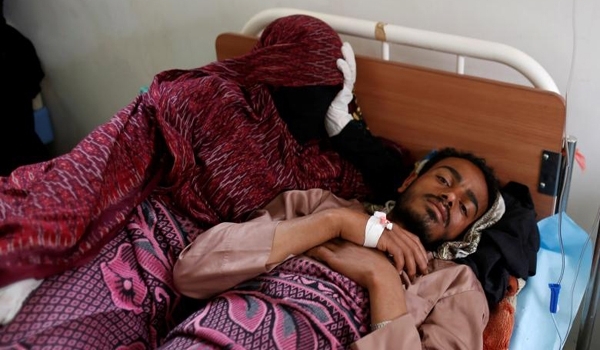
RNA - Yemen is now entering the sixth week of its second cholera outbreak in less than a year, and the country’s health infrastructure is well past its breaking point. Code black is a situation in which a hospital cannot handle the number of patients admitted. With at least one patient checking in at Sabaeen Hospital every minute, its staff is overwhelmed, RIA Novosti reported.
"Over the past two weeks, we've been receiving patients at a rate of one or two, sometimes even three, per minute," Ismail Mansuri, a doctor at Sabaeen Hospital, stressed.
The country saw its first cholera outbreak in October 2016. The disease reappeared in late April, with the United Nations saying that it is spreading at an "unprecedented rate."
British anti-poverty nonprofit Oxfam has estimated that one person in Yemen dies from the disease per hour.
The World Health Organization (WHO) also announced that the death toll of a cholera epidemic in Yemen has passed 900.
"A cumulative total of 124,002 suspected cholera cases and 923 associated deaths have been reported across Yemen since 27 April 2017," the WHO wrote on its official Twitter account.
Saudi Arabia has been striking Yemen since March 2015 to restore power to fugitive president Mansour Hadi, a close ally of Riyadh. The Saudi-led aggression has so far killed at least 14,000 Yemenis, including hundreds of women and children.
Despite Riyadh's claims that it is bombing the positions of the Ansarullah fighters, Saudi bombers are flattening residential areas and civilian infrastructures.
According to several reports, the Saudi-led air campaign against Yemen has drove the impoverished country towards humanitarian disaster.
Nearly 3.3 million Yemeni people, including 2.1 million children, are currently suffering from acute malnutrition. The Al-Saud aggression has also taken a heavy toll on the country’s facilities and infrastructure, destroying many hospitals, schools, and factories.
The WHO now classifies Yemen as one of the worst humanitarian emergencies in the world alongside Syria, South Sudan, Nigeria and Iraq.
847/940